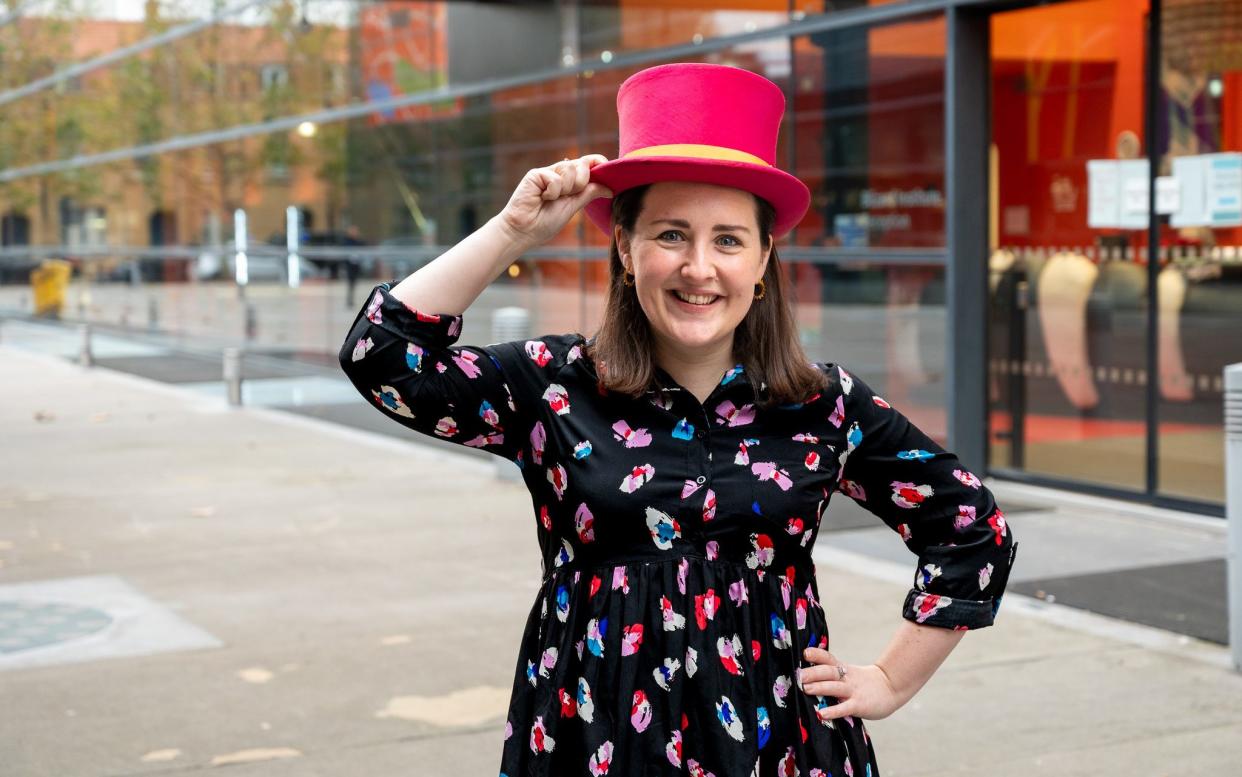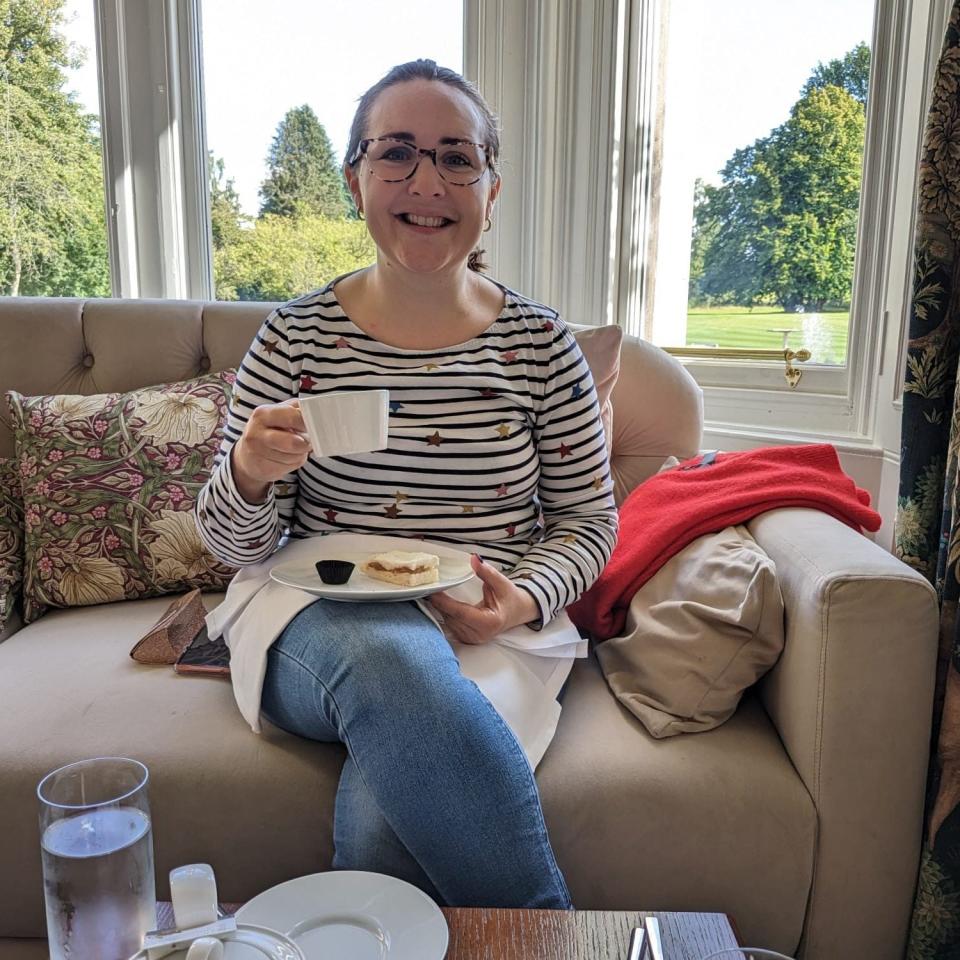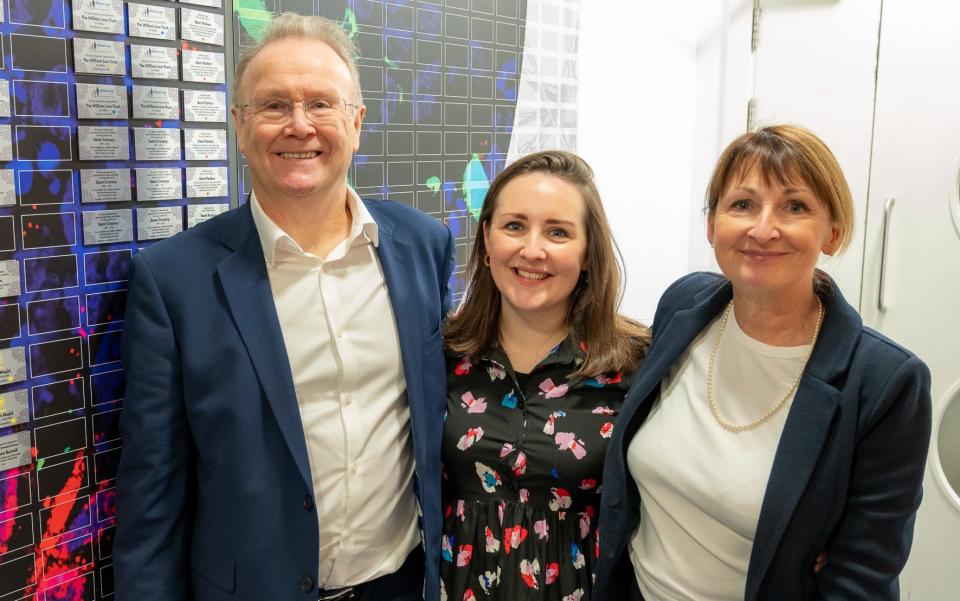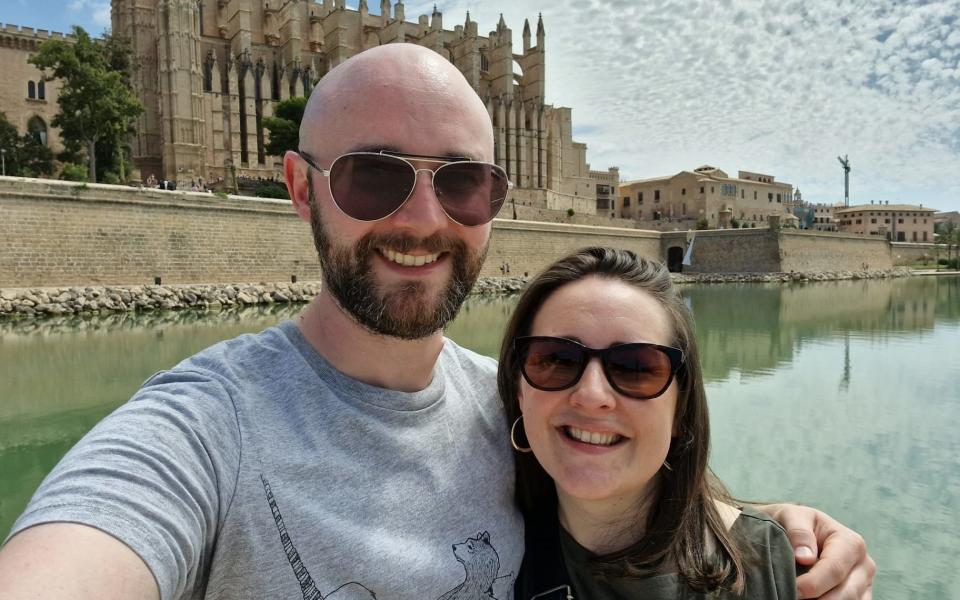Antiques Roadshow’s Theo Burrell: ‘I’m 37 with terminal cancer – I’m grieving the future I’ll never have’

The first symptom was car sickness on a journey I’d done many times before. I’d never had car sickness as a child so that was strange. Then I had what I thought was a migraine – visual disturbance, lots of vomiting.
That progressed to constant headaches and sinus problems, with my vision getting progressively worse. It felt like I’d been staring at the sun.
This started in December 2021, just a few months after I’d returned to work since having my son Jonah. He was just over a year old. The vision problems really worried me because of my job.
I was an antique specialist in glass and ceramics for the auctioneers Lyon & Turnbull in Edinburgh, and also for Antiques Roadshow, appearing in a few of their episodes a year. Analysing and looking carefully was really important. I knew my vision was just not right.
I went to my GP, I had my eyes tested, I paid for a private medical check. “Migraines” was one diagnosis, sinusitis was another. Painkillers didn’t touch the sides – by now, I had huge, pulsating pains in my head. In April 2022, another migraine – which I now think was a seizure – rendered me in bed for weeks and I was signed off sick.
Through all this, I’d avoided Googling my symptoms. I’ve always had anxieties around health and Googling doesn’t ever lead anywhere good. Now though, I did and “fluid on the brain” came up. I read that it could lead to the loss of your eyesight and that’s what triggered me to go to A&E at the Royal Infirmary in Edinburgh with my mum in June 2022.

We saw quite a junior doctor who listened carefully and put me through a CT scan. About 90 minutes later, he came back and I could tell by his face that it wasn’t good. He said: “I’m really sorry, but we’ve found a 5cm mass on the right side of your brain.”
I think I asked, “Is it cancer?”
“Yes,” he said.
He told me they needed to admit me now and they could operate. I remember saying, “I feel really sorry for you, having to give me this news.” He was gentle, calm, kind. That’s all I could think of in that moment.
It was difficult to take in fully. My mum was very shocked and upset, but nobody was crying. My partner Alex was at home with Jonah. I rang his mother and told her I had a cancerous brain tumour. I asked, “How do I tell Alex?” At some point, my mum stepped in and offered to call him. It must have been a very hard call to make. He was absolutely devastated.
The next day, I had a full body MRI scan, and that’s when the neurosurgeon came and told me he was pretty certain that this was glioblastoma. He explained that the surgery would probably remove over 90 per cent of the tumour but not all of it and this was incurable. It would come back. Without treatment, he said I had three months left to live.
It’s such a confusing, conflicting, contradictory journey. Obviously I was shocked, I was worried, but it was also a huge relief to feel physically out of pain for the first time in months.
In hospital I was given steroids which very quickly reduced the pressure in my brain. I was on liquid morphine. I had an appetite again. I’d also finally got an answer. It wasn’t that nobody had been listening.
It was just that nobody around me – my GP or my family – could have imagined in our worst nightmares that this was going to be a cancerous tumour. One of the things we did do, in hospital, was get a solicitor to come in and get our wills sorted – so we were thinking about time running out – but at the same time, I was also at the beginning. I had an operation, radiotherapy and chemotherapy ahead.
The operation took five hours and went well. I went home four days later. Walking into the house felt so different. My life had completely changed since I’d last been in it. Alex and my mum had deep cleaned everywhere to make it as nice as possible. There were so many flowers, cards and presents – body lotions, biscuits, brownies.

It was June, sunny and warm. Before my diagnosis, the light had hurt my eyes so much, I’d had to wear sunglasses indoors. Now I just wanted to enjoy the sunshine with the curtains open.
Back home, I remember reading Jonah a bedtime story when it hit me. Oh my goodness, how many more of these am I going to get? I did cry, Alex cried, but I don’t think Jonah was distressed, he was still tiny. We finished the story. Jonah is three now and I’ve never explained anything about this to him.
I don’t think he needs frightening information, it would confuse him. How do you explain this to a child that young? We’re just keeping things as normal as possible.
I’ve had radiotherapy and chemotherapy – all the treatment ended in March 2023. Now, it’s just scans every three months. I’ve never wanted to know my life expectancy.
I’d have lived my life according to it, always counting down. It would have dictated so much of my hope. All my scans have been stable – apart from one where the tumour had shrunk slightly. My last scan was in January.
I did go back to work but the fatigue was too much. I still have headaches and days I’m wiped out. I work a morning here or afternoon there but I can’t be full-time. I won’t be doing Antiques Roadshow this summer, especially as I’m not handling objects on a regular basis.
The prep would be too much. When I was diagnosed, I remember thinking, “Do I need to change anything? What do I want to do?” Actually, I realised that I was really happy with my life.
My priority is to spend time with my loved ones. It’s not about bucket lists. It’s taking my son to soft-play, or the park, or walks to the beach with Alex, Jonah and the dog.
There is a form of grief as you’re losing things. I’m grieving my old vision of my future. I’d taken it for granted that I was going to be an old person and see my son grow up, but I don’t know what the future looks like anymore. I never plan long-term. There are things in my diary for later this year, but I’ve just said: “If I’m well enough.”
I’ve heard what my oncologist and surgeon said. I know the tumour will be coming back and to a certain extent, I’ve accepted that it will take my life, but that doesn’t mean I’m not desperate for change, for better treatments and a cure.
Whatever happens, I have absolutely no doubts that Jonah is going to be well looked after and so loved. I’ve no worries about any of that. Alex is such a good dad. He works from home as a software developer and he has been amazing and carried the family.

At the moment, we’re talking about schools for Jonah next year, but I haven’t felt the need to write any instructions or wishes for his future. That’s partly because it would be insulting to Alex and also because it would be like saying I’ve given up hope.
What I do worry about is the trauma that my family are going to go through at some point. In some ways, it’s much easier having the cancer than watching someone else go through this.
Becoming a patron for Brain Tumour Research has given me so much purpose. Every day, I speak to somebody who is either living with a brain tumour or living with somebody who has one – mums and dads, husbands and wives, sons and daughters.
Some of my closest friends now are people with brain tumours, so I don’t feel lonely at all. I’ve also learned that I’m more resilient than I thought. I worried for a long time about getting ill and underestimated my ability to cope with bad news, but now that it has happened, I’ve just got on with it.
I’ve been lucky – I’m 21 months with stable scans – but when things go wrong and the tumour re-grows, there will be very limited treatment options. It will be hard to maintain positivity but I’m seeing people do it all the time.
I know people who have a tumour spreading across their brain but they’re still getting up every day and living their lives. Brain tumours kill more children and adults under 40 than any other cancer but it gets just 1 per cent of the national spend on cancer research.
That has to change – so I’m going to keep making a noise about it while I can.
Wear A Hat Day, supported this year by Novocure, is on Thursday March 28, during the 15th anniversary year of Brain Tumour Research. To find out more, visit wearahatday.org

 Yahoo News
Yahoo News 
